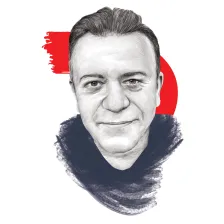In the Jordanian capital of Amman, what analysts say on local satellite talk shows and what they share candidly in the city’s private evening salons can be two different things. With more questions than answers, there is anxiety in the city. Politically, things seem calm, but there is a fundamental and underlying tension, as if the state were quietly edging towards big, momentous decisions.
Prime Minister Jaafar Hassan’s government is technocratic, data-driven, and sustained by an unusually high level of public patience, but in parliament there are theatrics, not least from the Islamic Action Front (IAF), the political wing of the Muslim Brotherhood which, on 23 April, was banned as an “illegal organisation,” after 80 years of operating in Jordan. That followed the arrest, by security services, of individuals suspected of planning rocket and drone attacks.
Despite all the talk of reform, Jordan’s political parties remain paralysed, unable to evolve into meaningful vehicles for change, while all about them the situation calls for action. In southern Syria, peace is fragile at best, while the occupied West Bank teeters on the brink.
In the background, King Abdullah II has travelled abroad privately, fuelling rumours that there will be changes to the state’s security and military apparatus. Will it be a genuine recalibration of the Jordanian state, or just enough to weather the regional storm?
Health and rail
Despite the apparent coherence of its economic messaging, Jaafar Hassan’s government remains politically vulnerable, relying primarily on Royal trust and tentative hopes for deferred economic relief. In having to undo the often misguided decisions of its predecessors, it risks unsettling entrenched interests and further eroding confidence in the overall consistency of state action.




